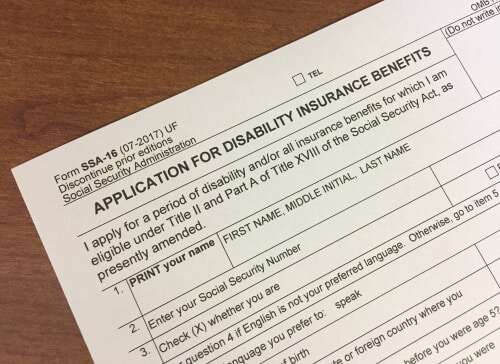
While Social Security Disability can be a life saver for many, the process for being approved for disability benefits can be a shocker to someone who has worked all their life and needs help quickly. This post attempts to address common misconceptions about Social Security Disability.
Attorney Kimberly Bishop has represented Social Security Disability clients since 2009 and is a NC State Bar Board Certified Social Security Disability Attorney. In addition, Chasity Everett, SSA EDPNA, has been helping disabled clients for more than 15 years. We represent disabled clients in Raleigh, NC and surrounding areas and we do not get paid unless we win.
Overview of Benefits
SSA offers two types (generally) of benefits for the disabled. () and (). is based on while is a need based program. Your for these benefits will need to be established before you are allowed to apply for benefits with your . Even if SSA allows you to make a or , you may receive a automatic denial soon after if you are not eligible.
After you apply for and/or , you case will be sent to Services (DDS) or the equivalent in your state. DDS makes the initial and reconsideration level decisions for the SSA in most U.S. states. You should read Overview of the Disability Process for more information on the steps to a disability claim.
Over the years, we have worked with many disabled clients but the misconceptions about never seem to cease:
Ten Misconceptions about Social Security Disability
- Social Security Disability is not short term disability. To be eligible for Social Security Disability Insurance (SSDI) or Supplemental Security Income (SSI), your impairment(s) must be expected to last for 12 months in a row or result in death. If you are ill, recover and are able to go back in the same year, you are not eligible for Social Security Disability benefits.
- SSDI is based on the credits from the work you have done in your life. In general, you must have worked five of the last 10 years to be eligible for SSDI. Also, the amount of money you paid in while working will determine how much money you receive. So, for example, if you made $20,000 a year while working, you should not expect more than that from your disability checks. In fact, you should expect a lot less.
- SSI is a need based program which means your assets and income must be below SSA's guidelines to be eligible. In most situations, SSDI is a higher monthly amount than SSI. In certain circumstances a person can be eligible for both but will only receive up to the maximum SSI amount.
- While SSDI and SSI are two separate types of benefits, the process for being found disabled by SSA is the same for each program. You must be found disabled under SSA's Five Step Sequential Evaluation before you are entitled to either benefit. Then, in addition, you must meet the requirements for each program to receive actual benefits.
- Contrary to what many think, a doctor can not put you on SSDI or SSI benefits. A doctor can give their opinion about your restrictions, but SSA makes the final determination as to if you are disabled. But, if your doctor gives a well-reasoned evidence based opinion, it may help your case.
- If another government agency has found you disabled (Veterans Administration or State Government) that does not mean that SSA will as well. The criteria for eligibility is different for each agency and SSA will strictly apply their criteria to your disability case. But as mentioned above in #5, this could help your case if it is consistent with the other evidence in your file.
- The name of your impairment(s) is not as important as the severity of your symptoms. Being diagnosed with cancer alone will not qualify you for disability, what matters is how the cancer is affecting your life and your ability to work.
- Medical evidence is required. Without medical evidence you will have a difficult (very close to impossible) road ahead of you because Social Security will have no basis upon which to validate your claims. Even if you do not have health insurance, you need to try every free or reduced clinic that you can, apply for Medicaid or Charity Care, etc. As a common sense matter, sick people go to the doctor, even the emergency room when they have to.
- Consistency is important for your case. If you tell one doctor you can walk a mile and then tell another you can walk 5 miles, both statements are going to be perceived as inconsistent and thus you will lose credibility in the eyes of the SSA adjudicator making a decision on your claim.
- SSDI and SSI are immediate safety nets for those that get sick. This is very far from the truth. After you apply for benefits, it could take up to 12-18 months before you start receiving benefits if you have to go through the initial, reconsideration and hearing levels. SSA Disability is for long term help, not immediate rescue.
For more information also read: Social Security Disability.
Social Security Disability can be difficult to attain, but if you are unable to work because of your health, you do not have a choice. Apply for Social Security Disability as soon as you can as delay may cause you to lose benefits.
Our firm represents disabled clients in Raleigh, Cary, Durham, Fayetteville, Smithfield, Rocky Mount, Wilson, Chapel Hill, Roanoke Rapids, Louisburg and other areas in North Carolina. Call us today for a free case review, (919) 615-3095.

